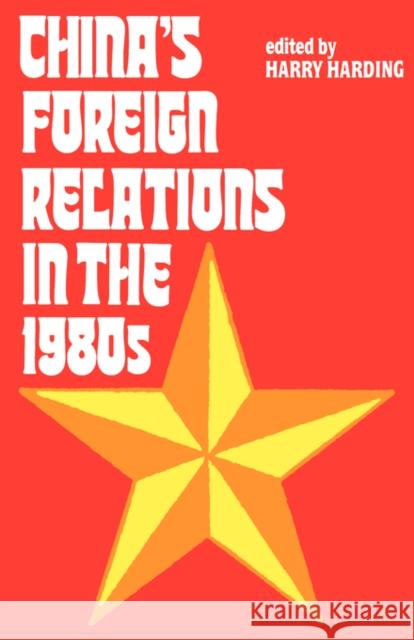China's Foreign Relations in the 1980s » książka
China's Foreign Relations in the 1980s
ISBN-13: 9780300036282 / Angielski / Miękka / 1986 / 256 str.
What role will China play in world affairs during the 1980s, now that it has normalized relations with the United States and opened wider its economic doors? In this thoughtful and important book, six respected scholars analyze the major factors that shape the foreign policies of China today. The book begins with an essay by Michael Hunt that puts China's foreign relations in historical perspective. In subsequent chapters, Kenneth Liberthal discusses the domestic context of China's foreign policy, Steven Levine analyzes China's regional policies within Asia, Bruce Reynolds focuses on the role China plays in today's international economy, and Jonathan Pollack assesses China's place in the global strategic competition between the Soviet Union and the United States. The book concludes with a chapter by editor Harry Harding on change and continuity in China's foreign policy since 1949. The authors bring to their analyses varying perspectives and expertise. They all agree however, that the historical, political, and strategic determinants of Chinese foreign policy will probably prevent Peking from maintaining an extremely close association with the United States and the West and that in the future China will increase its level of involvement in Asia. If these projections are correct, Americans must learn to accept a complex relationship with China that contains elements of both tension and cooperation. Such a relationship will require a sophisticated understanding of China--one that this book will help to provide.











